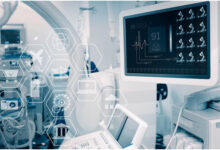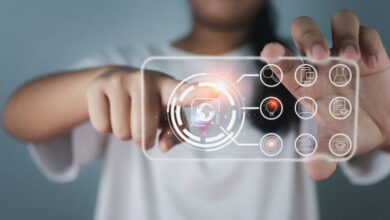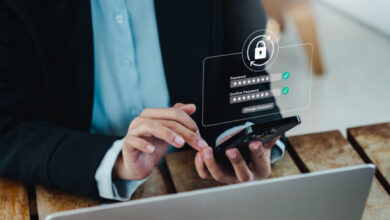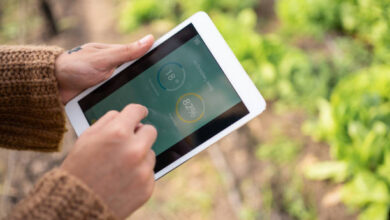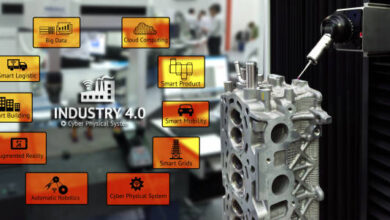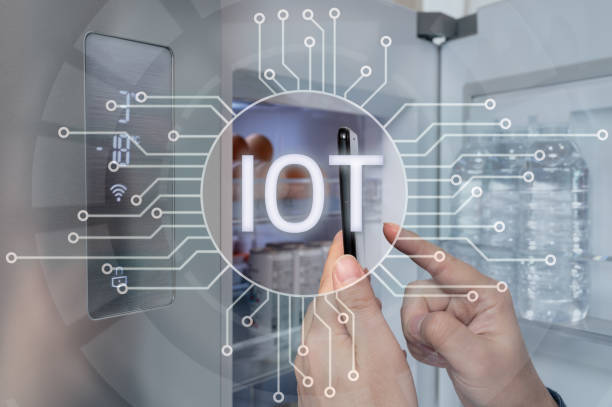
In recent years, the Internet of Things (IoT) has emerged as a revolutionary force in various industries, and healthcare is no exception.
The integration of IoT in healthcare holds the promise of transforming patient care, improving outcomes, and revolutionising medical practices.
In this blog post, we delve into the potential of IoT in healthcare and explore how this cutting-edge technology is reshaping the future of the healthcare industry.
Connected Medical Devices

IoT-powered medical devices have opened up new frontiers in patient monitoring and diagnostics.
Connected wearables, such as smartwatches and fitness trackers, collect real-time health data, such as heart rate, blood pressure, and sleep patterns, empowering individuals to proactively manage their health.
In clinical settings, IoT-enabled devices can continuously monitor patients’ vital signs and relay the data to healthcare providers in real-time.
This seamless connectivity improves early detection of anomalies, enabling timely intervention and personalised treatment plans.
The National Institues of Health cited that remote patient monitoring through IoT also reduces the need for frequent hospital visits, providing convenience and cost savings for patients.
Smart Hospitals
The concept of a smart hospital embraces the full potential of IoT to optimise operational efficiency and patient care.
IoT technology is used to automate various hospital processes, such as inventory management, asset tracking, and facility maintenance.
IoT-powered tracking systems ensure medical equipment availability, reducing the risk of delays in critical patient care.
Real-time location services improve patient flow, minimising wait times and enhancing the overall patient experience.
Additionally, IoT sensors monitor environmental conditions, ensuring optimal comfort for patients and staff.
Data-Driven Healthcare
According to Dignity Health Global Education, the wealth of data generated by IoT devices in healthcare holds immense potential for improving medical insights and decision-making.
Big data analytics and AI algorithms analyse vast datasets, identifying patterns and correlations that may not be apparent to human analysts.
By integrating IoT-generated data with electronic health records and other patient information, healthcare providers can gain a comprehensive view of a patient’s health history, enabling more accurate diagnoses and tailored treatment plans.
Data-driven healthcare also facilitates population health management, allowing providers to identify health trends and implement preventive measures at scale.
Telemedicine and Remote Consultations
IoT-driven telemedicine has emerged as a game-changer, particularly in regions with limited access to healthcare facilities.
Through IoT-enabled telemedicine platforms, patients can engage in virtual consultations with healthcare professionals, breaking down geographical barriers and expanding access to medical expertise.
In rural or underserved areas, patients can remotely share their health data with doctors, enabling physicians to make informed decisions without the need for in-person visits.
This form of healthcare delivery is especially crucial during public health crises, such as pandemics, where social distancing measures are necessary.
Medication Management and Adherence
IoT technologies have transformed medication management, enhancing patient safety and adherence to treatment plans.
IoT-enabled smart pill dispensers and medication reminder devices ensure patients take the right medication at the prescribed time.
These devices can also send notifications to caregivers or healthcare providers if a patient misses a dose, enabling timely intervention to prevent potential complications.
Improved medication adherence through IoT not only enhances patient outcomes but also reduces hospital readmissions and healthcare costs.
Wearable Health Tech
Chronic diseases, such as diabetes and hypertension, require constant monitoring and management.
IoT-powered wearable health tech empowers individuals with chronic conditions to take control of their health.
Smart glucose monitors and blood pressure cuffs allow patients to track their health metrics conveniently.
Insider Intelligence says data from wearables can be synced to mobile apps, providing patients with real-time insights into their health trends.
This self-monitoring approach fosters a sense of empowerment and encourages proactive lifestyle choices that positively impact chronic disease management.
Privacy and Security in IoT Healthcare Solutions
While the potential of IoT in healthcare is immense, it also raises concerns about data privacy and security.
The vast amount of sensitive patient information collected by IoT devices necessitates robust cybersecurity measures.
Research Gate recommends that healthcare organisations should implement encryption protocols, access controls, and regular vulnerability assessments to safeguard patient data from cyber threats.
Additionally, strict compliance with data protection regulations, such as HIPAA in the United States, is essential to ensure the privacy of patient health information.
Okay my dear readers, now let’s look into some frequently asked questions (FAQs) about Exploring the potential of IoT in healthcare.
What is the potential of IoT in healthcare?
The potential of IoT in healthcare is vast, ranging from remote patient monitoring, real-time health data collection, predictive analytics, to personalized patient care.
How can IoT improve patient outcomes?
IoT can improve patient outcomes by enabling early disease detection, facilitating timely interventions, reducing hospital readmissions, and promoting proactive and personalized healthcare.
Is IoT secure for healthcare data?
Implementing robust security measures is essential to ensure the safety of healthcare data in IoT.
Encryption, authentication protocols, and compliance with healthcare regulations are key to data security.
How can healthcare providers embrace IoT?
Healthcare providers can embrace IoT by adopting connected medical devices, investing in secure IoT platforms, collaborating with tech companies, and prioritizing data privacy in IoT solutions.
Conclusion
The integration of IoT in healthcare holds the promise of revolutionising patient care and transforming medical practices.
Connected medical devices empower patients to actively manage their health, while smart hospitals optimise operational efficiency and patient experiences.
Data-driven healthcare leverages big data and AI to provide better insights and personalised treatment plans.
Telemedicine and wearable health tech break down geographical barriers, expanding access to healthcare and empowering chronic disease management.
IoT-driven medication management enhances patient safety and adherence to treatment plans.
However, amidst these advancements, it is crucial to prioritise data privacy and security to build trust in IoT healthcare solutions.
As IoT continues to evolve, healthcare professionals, policymakers, and technology innovators must collaborate to harness its full potential, ultimately driving positive outcomes and transforming the future of patient care.
By embracing the possibilities of IoT in healthcare, we embark on a journey towards a more efficient, accessible, and patient-centric healthcare system.

